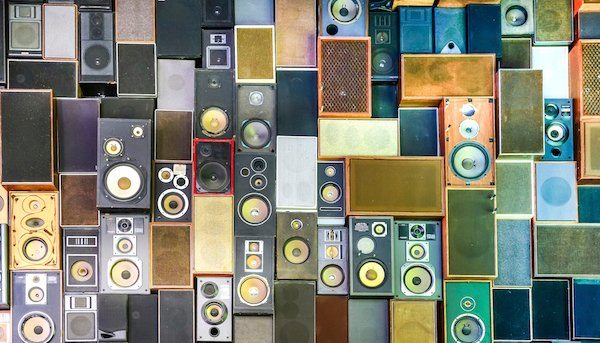17 Ways To Survive And Thrive As An Artist Today
Surviving as an artist in the modern age is tricky. Trust me, I know, I’ve been doing it for nearly 20 years with varying degrees of success.
But with a little bit of strategy and discipline, you can survive—and even thrive—as an artist and creator these days. I’m going to show you how.
When I was touring the world as a musician more than a decade ago, making money wasn’t an issue. The music industry had coin to spare, and fans were buying our CDs and coming to our shows in droves. Not only that, the TV, film, and video game industries were paying top dollar to license our music.
Today, things have changed quite a bit. Because we live in a world dominated by “profit margins” and “bottom lines,” money isn’t being thrown around anymore like it used to be. Internet piracy and streaming services like Pandora have created an enormous financial void for the majority of recording artists, who once depended on sustainable royalty checks to make ends meet. To make matters worse, a declining world economy has thinned the wallets of the fans who doactually want to support their favorite artists.
Because of all these frustratingly prohibitive factors, the middle class of creators has taken a serious hit.
The term, “artist” is notorious for provoking skepticism and prejudice among a broad spectrum of people. Artists are often looked down upon by “productive members of society” as lazy, unmotivated, or poor. Perhaps this is because artists sometimes focus on the creative aspect of things to the detriment of good, solid business practices.
And the truth is, without a solid foundation, artists may never get past living hand to mouth.
What must we do to survive? How can we make it work when there are so many odds stacked against us?
- First and foremost—and I can’t stress this enough—be unique.Nothing makes you less valuable than being a copycat. Sure, you might make a few bucks here and there by replicating what other people do, but when the trend changes, you’ll be back to square one.
- Stand for something. There’s a quote that I love: Don’t worry about being successful; become meaningful and the success will follow. When you create meaningful art, people will want to be a part of that.
- Find time to center yourself once a day before you get started. I’ve found that meditation is extremely helpful when I’m feeling overwhelmed. Nothing is more difficult to overcome than a troubled mind.
- Keep practicing. The more time you invest in your art, the better you’ll become. Virtuosos aren’t made in a day (or even a year).
- Without coming off as desperate or aggravated, constantly express the importance for art to others, and the need for them to support it. Without art, life would be dull and mundane—and without support, artists struggle to do what they do best.
- Cultivate a fan base and make yourself accessible to them. Let them know who you are and what you’re about. Document your processes so that you can create empathy and loyalty among them. Invest time in them. Be sincere. There’s no room for a “rockstar” attitude.
- Create tiers of affordability for your work. You might want to sell that $5,000 painting, but make a few smaller ones that your other fans can afford, too. The little stuff adds up.
- Build a professional and comprehensive online presence. Nothing says “I’m not a pro,” like a chintzy website. If you can’t afford a custom website, there are myriad WordPress templates that you can purchase for very little that cater to a broad spectrum of needs.
- Put your portfolio on websites that cater to what you do. For example, musicians have sites like Soundcloud and bandcamp. Visual artists have deviantart. There are tons of them out there. Figure out which ones work best for you, and then make your work available. How is anyone going to know about you otherwise?
- Work on a variety of projects that relate to what you do in one way or another. For example, I teach on lynda.com make music for film and TV, create sample packs, produce other bands, and so on. Don’t limit yourself to one avenue of income. Be flexible. The experience and connections from all those things will come in handy later on.
- Budget your time. There are only so many hours in a day, and beyond burning yourself out creatively, it’s important to spend an equal amount of time on all aspects of your life as well as your career. Balance is key.
- Create a strategy that will form the basis of your business. Invest time in researching proven methods that have worked for others like you. Remember, you’re not the first person to do what you’re doing. Someone else has already laid a lot of groundwork, so learn from their mistakes and triumphs. Reach out to them, if possible.
- Network with people and local businesses. Figure out who you can create mutually beneficial relationships with. Social media isn’t enough. You’ve got to get out there and make real connections. A good solid network is the key to success. If you’re not a people person, read this. It changed my life.
- Use crowd-sourced funding to fuel big projects once you have a fan base, or find a benefactor. Create tangible incentives for your fans to invest in you. Ask them what they want. If you make it exciting and worthwhile, your fans will support you.
- Create a budget using Mint or QuickBooks—and stick to it.
- Never stop learning new things. Invest time in learning things that relate to what you do but are outside of your expertise. For example, I’m a musician, but I’ve learned Photoshop, Final Cut Pro X, web design, and so on, so that I can call on those skills as needed. They will always come in handy. Remember, knowledge is power.
- Lastly, be patient. Building a flourishing career around your art takes a long time, and you’ve gotta be willing to stay the course—so don’t give up!
In closing, I just want to show you a picture of a poster that I have hanging on my wall called “The Road To Success.” I look at this once a day, and nothing I’ve ever found has so elegantly illustrated all the ideas I’ve just shared with you. Good luck!
(Written by J. Scott G.)



